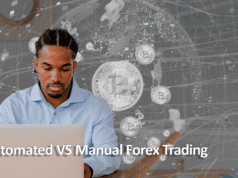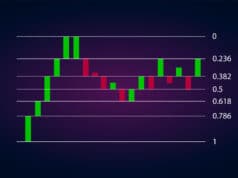Forex trading involves buying and selling currency pairs. Popular pairs such as GBP/USD or EUR/USD may yield high returns. On the surface, Forex trading seems a highly lucrative activity.
There are many trading bots and other useful trading tools available on the market to assist and guide novice traders. Yet, what is not being discussed is that there are traps that new and experienced traders alike fall into.
In this article, we will pinpoint the seven biggest forex trading mistakes that everyone makes, which may cost you a lot of money.
Not doing the research before investing
The very first step every trader needs to take before starting their investment is to do research.
Goals and needs must be determined before selecting the most suitable method of investments to fulfill them.
There are two main methods of trading in forex. The first one is a manual traders’ approach, where traders make decisions and execute trades by themselves. The other method is one employed by many – the use of a forex robot. Such a robot recognizes market signals and helps users fill their orders based on pre-set parameters.
Furthermore, to do thorough research, the right questions must be asked. The critical considerations are:
- Pros and cons of different Forex EAs
- The risks involved with Forex trading
- The available tools when trading
- Market terminology and signals such as candlestick charts or leverage
A holistic understanding of how the market operates, the risk involved, and all the nuances with the chosen investment method are vital before beginning trade.
The effect of emotions
A lack of understanding of markets will lead to trade decisions made through emotion rather than reason.
When acting upon emotion, the trader falls into the trap of market psychology. As the price goes up, the natural tendency is to give in to the fear of missing out (FOMO) and buy. However, this rise cannot be sustained indefinitely, and eventually, the ‘market bubble’ will pop, and decisions made through emotions will yield losses rather than profits.
Investing more than you can afford
Like all investments, trading Forex comes with a risk. Therefore, trade with only what you can afford to lose.
Many economists suggest a 50-40-10 split of one’s monthly income, with 40% dedicated to investments. This amount should be split between safer and riskier investments depending on the traders’ age and financial situation.
For an older trader, the ratio of riskier investments will be smaller than a younger person and vice-versa.
A good metric that is recommended is each trade should be executed with a maximum of 5% of the available capital.
Not using stop loss
Stop loss is an invaluable tool for all forex traders. It is a system that enables exit from any position once the trader loses a certain amount. This amount is set and pre-determined by the trader.
This tool prevents traders from losing control over their risk and acting based on emotions, as well as avoiding being glued to the computer.
Trading without a plan
Having a plan is imperative with trading. There is a famous saying, “A goal without a plan is just a wish.” A plan needs to consist of a clear goal, a strategy, and an exit strategy.
The trading plan needs to be a balance between flexibility and rigidity. The perks of a flexible plan include the ability to adjust according to the market conditions. For a volatile market, the better strategy might be to make small, quick trades to make mini-profits.
Obstinacy might cost a great opportunity when change is present. On the other hand, when the market is volatile and unpredictable, traders tend to be more emotional with their decisions because more money is at stake at a faster rate. A fixed plan prevents any emotionally driven urge to deviate from the rules.
Deciding when to move on and take profit is important. Trading is like a casino; if one keeps trading indefinitely, the likelihood is that eventually, all capital will be lost. Therefore, before starting to trade, have a vision of an exit strategy.
Taking quick profits
Having a plan is a good start but having a great plan is even better. Many plans end up consisting of taking quick profits and small losses. Nevertheless, to fully maximize profits and formulate a great plan, it is imperative to analyze the state of the market.
In bullish market conditions, taking quick profits will prevent the full exploitation of market potential and leave traders at risk of losing more.
Moreover, quick profits are primarily emotionally driven. Most of the time, emotional profit-taking starts a vicious cycle, hurting the trader’s performance.
Not keeping up with current events
Current news events determine investors’ behaviors, which in turn drive the market.
For example, if countries within the EU have conflict, the euro will likely decrease in value. Hence a good trading strategy could be shorting the euro and waiting to buy back at a lower price.
By keeping up with local and international news, traders can make well-reasoned speculations to capitalize on big opportunities and avoid traps.
The forex market has huge potential to gain exponential profits. A good understanding of the market and knowledge of risk management will be crucial to maximize returns and minimize losses that could incur during the trading process.




